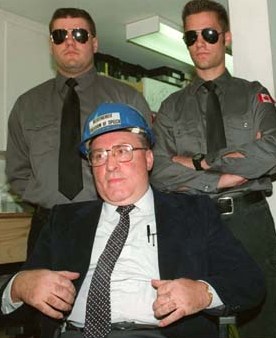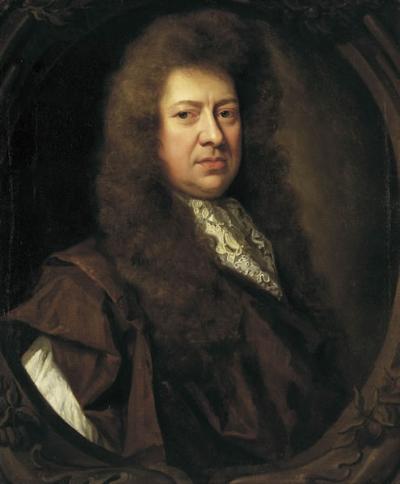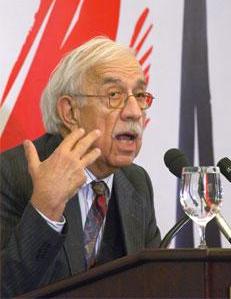Holocaust Education & Archive Research Team |
|
Essays & Editorials Student Essays A brief narrative on the 2006-09 essays by Matthew Feldman 2008 - 2009 2007 - 2008 2006 - 2007 H.E.A.R.T Editorials | |||||||
[Please note that editorials posted in this section are the sole viewpoints of the individual author and do not necessarily
Holocaust Denial: An unavoidable introduction?
Guest Publication by Matthew Feldman [photos added to enhance the text]
This essay touches upon a subject that is no laughing matter, even if most of the proponents of Holocaust denial today are, upon inspection, pretty risible characters. At the same time, this is a highly sensitive issue and, it must be said, quite serious matter that has become increasingly visible in the public sphere – and nowhere more so than online. In considering some of the motives of those who are, to quote the important study from 2000, Denying History: Who says the Holocaust didn’t Happen and Why do they say it?, Michael Sherman and Alex Grobman concluded that motivations for Holocaust denial are overwhelmingly advanced ‘for present political or ideological reasons’ (238), especially anti-Semitism and fascism. For Richard Evans, a historian who testified at David Irving’s unsuccessful libel trial against Deborah Lipstadt and her publisher, Penguin Books, such deniers typically held the ‘minimum following beliefs’:
Given the above, understandably, many feel passionately that there is no debate to have with deniers: the Holocaust took place; and therefore, spending even a moment on the subject of Holocaust denial is simply a waste of time. I agree with these first two points: there is indeed no benefit in debating whether the Holocaust ‘happened’ with those who think, against the mountains of evidence, that it did not. Yet it does not follow, for me at least, that simply ignoring this phenomenon altogether is the best way forward. While arguing with deniers themselves may be pointless, trying to understand their motives and arguments is not. For either way, this needs to be recognized: Holocaust denial exists, it is growing exponentially, and ignoring the subject has, it seems, only allowed for Holocaust denial to grow unchecked – until the intervention less notably by historians and social scientists than by lawyers and judges in the 1990s, particularly in the cases of Holocaust deniers Ernst Zündel and later, more infamously, Irving. In tandem with the development of the historical Holocaust itself, then, Holocaust denial was employed by Holocaust perpetrators – that is, the Nazis and their collaborators during the Second World War – and was done for self-serving, ideological and anti-Semitic reasons. In short, Holocaust deniers must contend with thousands of corresponding testimonies by perpetrators and victims alike; they must ignore literally tens of millions of pages of contemporaneous documents; and they must argue that both general understandings of history and generations of academic historians are deluded, deceitful or conspiratorial in their scholarship on the Holocaust.
To throw this point into some relief, we have but a handful of authentic sources about the Norman Conquest, or the Spanish Armada, or even the Great Fire of London in 1666 – the latter for example, including less that a dozen accounts from that year, of which the ubiquitous diary by the parliamentarian Samuel Pepys is certainly the best known. Yet to my knowledge, no one has carbon-dated Samuel Pepys’ diaries for authenticity; forensically analyzed his handwriting for veracity; or produced a 250-page report on the diary’s legitimacy – as the Netherlands State Institute for War Documentation felt compelled to do with the Anne Frank Diary in the 1980s. This was as largely a result of systematic forgery claims by well-known deniers such as Richard Harwood (aka Richard Verrall of Britain’s National Front), Arthur Butz, Robert Faurisson and of course, the gold standard of these historical deceivers, David Irving, late of an Austrian prison cell for the espousal of Holocaust denial. Najarian’s point is as simple as it might be unexpected: despite the frequency of anti-Semitism and radical right politics typically motivating Holocaust denial, ‘Holocaust deniers efface history by using some of the same linguistic channels that late twentieth-century intellectuals commonly use’ (76). These tactics include scholarly presentation, argumentation and deployment of evidence, even if highly selective and dubious. Over time, the more academically-minded Holocaust deniers thus attempted to establish a ‘revisionist’, yet seemingly sophisticated, ‘interpretation’ of history that posited the effective non-existence of the Third Reich’s genocidal ‘Final Solution’. To cite Evans again, importantly, their writings were instead ‘mostly distributed by mail order’, and of a caliber that ‘seemed to belong in the world of sensational newspapers such as you could buy in American supermarkets, recounting the experiences of people who had been abducted by little green aliens or who had seen Elvis Presley still alive’ (107-8). In short, until about 20 years ago, Holocaust deniers were largely a subspecies of the tin-foil hat conspiracy brigade, and were dismissed out of hand by bemused, baffled or offended onlookers. But then again, this was prior to the rise of the internet. So too with the 152 journal articles and peer-reviewed texts employing the keyword ‘Holocaust Denial’: fully 71 of these have been published in the last ten years alone, in contrast to zero listed prior to 1973 and only 2 across the 1970s, rising to 17 texts across the 1980s. While this is something of a rough and ready quantification, I think it is likely in keeping with other national contexts and academic agendas beyond Britain’s. Making sense of this, we might say that deniers published to deafening silence for fifty years after the Second World War, and only in the last decade, or perhaps two, has scholarship confronted this trend.
Yet if denial is a slap in the face to the remembrance of the Holocaust – or better, its inverse: Holocaust denial is the trivialization and negation of accepted history – then it seems to me that a leading Holocaust website is as good a forum as any to confront it, to examine it, and to show it for what it is. Perhaps by familiarizing ourselves with the central arguments and postwar history of Holocaust denial, however nauseating and noxious they may be, it is possible to recognize the attempts by extremists to hide behind scholarly facades and seemingly intellectual arguments.
Particularly with the communication possibilities offered by the internet and related New Media technologies, recognizing these weavers of deception for what they are, and indeed always have been, has never been so important as it is today.
This is much the same conclusion reached by Deborah Lipstadt, in her watershed book of the same time, Denying the Holocaust. Given her refusal to be cowed by Holocaust deniers like David Irving, no less than her principled refusal to engage with their pseudo-intellectual shenanigans long before the problem of Holocaust denial manifested itself online, her final words there are no less appropriate as final words here and now, a generation later:
Copyright: 2008 Matthew Feldman H.E.A.R.T
|



